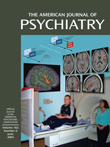Antidepressants and Children’s Depression
To the Editor: In October 2004, the U.S. Food and Drug Administration (FDA) officially announced that it would require manufacturers of the selective serotonin reuptake inhibitor (SSRI) and tricyclic antidepressants to add a black box warning label to each drug’s package information (1). This action closes the latest chapter on a decade-long controversy involving SSRIs. I attended both the February and September 2004 FDA hearings on SSRIs and children’s depression. During the meetings, I was struck repeatedly by a message I heard from psychiatrists both on the expert panels and those testifying during the open public hearing sections. Again and again I heard them say, “Don’t take away the only thing we have to offer these kids.”
After the official FDA announcement on the black box warning, the American Psychiatric Association said that it had “deep concern” over the black box warning and its potential “chilling effect” on treatment. “We believe the biggest threat to a depressed child’s well-being is to receive no care at all” (2).
Of course, all quotes can be taken out of context, but I’m left feeling disappointed and distressed. First, as a frontline practitioner, I’ve been asked over and over to practice evidence-based medicine. However, when the evidence in 4,600 children simply isn’t there for SSRI effectiveness in pediatric depression, I am now asked to believe, once again, in “professional experience.” Even data from the recent Treatment for Adolescents With Depression Study (3), which was meant to bolster the case for fluoxetine in adolescent depression at the hearings, ironically led panel experts to further question the drug’s effectiveness and safety (including higher rates of suicidality in the treated versus placebo group).
Most disturbing is the implied role for today’s child psychiatrist or behavioral/developmental pediatrician in the treatment of childhood depression. If SSRIs are ineffective for large numbers of youth, have we no other care to offer them? The testimony and response of organized psychiatry to the SSRI controversy suggest just how far the field has moved from the biopsychosocial to the medical model of disease and intervention. A survey of recently trained child psychiatrists (4) found that only one in 10 children in their practices does not receive a medication. I must say that I missed a voice like that of Robert Coles (5) representing the profession at the FDA hearings.
The training, experience, prestige, and power of child psychiatry seem wasted when all of practice is reduced to diagnosis and medication. The role of the child psychiatrist in influencing children, parents, schools, and communities is paramount. Why does it seem that we are more ready to intervene in the environment of the synapse than in the environment of the child? The controversy over SSRIs and children’s depression should give us pause to consider “effective” treatments and our own roles in providing them.
1. Harris G: FDA toughens warning on antidepressant drugs. New York Times, Oct 16, 2004, p A8Google Scholar
2. APA responds to FDA’s new warning on antidepressants: American Psychiatric Association News Release, Oct 15, 2004. http://www. psych. org/news_room/press_releases/04–55apaonfdablackboxwarning. pdfGoogle Scholar
3. March J, Silva S, Petrycki S, Curry J, Wells K, Fairbank J, Burns B, Domino M, McNulty S, Vitiello B, Severe J (TADS Team): Fluoxetine, cognitive-behavioral therapy, and their combination for adolescents with depression: Treatment for Adolescents With Depression Study (TADS) randomized controlled trial. JAMA 2004; 292:807–820Crossref, Medline, Google Scholar
4. Stubbe DE, Thomas WJ: A survey of early-career child and adolescent psychiatrists: professional activities and perceptions. J Am Acad Child Adolesc Psychiatry 2002; 41:123–130Crossref, Medline, Google Scholar
5. Coles R: The Mind’s Fate: A Psychiatrist Looks at His Profession—Thirty Years of Writings. Boston, Little, Brown, 1995Google Scholar



